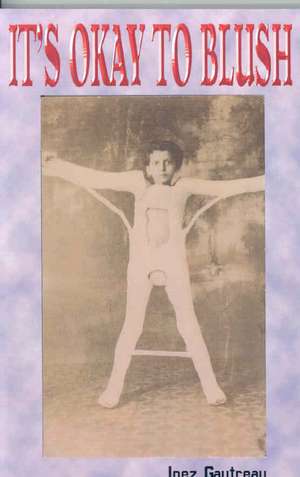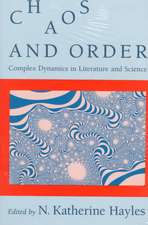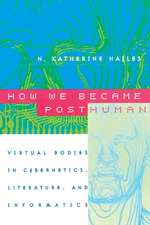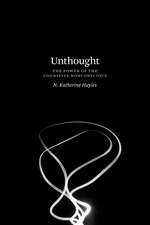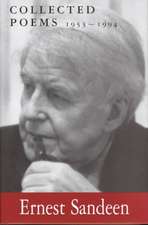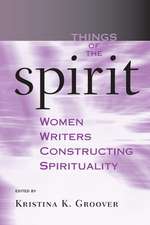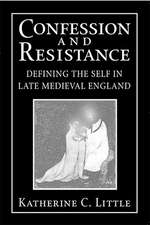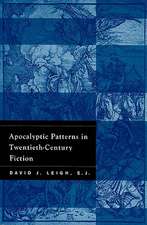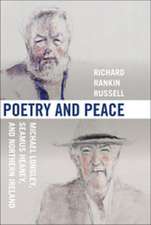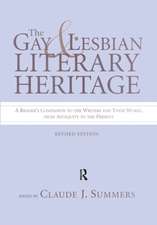Electronic Literature – New Horizons for the Literary: Yusko Ward-Phillips Lectures in English Language and Literature
Autor N. Katherine Haylesen Limba Engleză Hardback – 29 feb 2008
| Toate formatele și edițiile | Preț | Express |
|---|---|---|
| Paperback (1) | 147.84 lei 6-8 săpt. | |
| MR – University of Notre Dame Press – 29 feb 2008 | 147.84 lei 6-8 săpt. | |
| Hardback (1) | 588.81 lei 6-8 săpt. | |
| MR – University of Notre Dame Press – 29 feb 2008 | 588.81 lei 6-8 săpt. |
Preț: 588.81 lei
Preț vechi: 764.68 lei
-23% Nou
Puncte Express: 883
Preț estimativ în valută:
112.67€ • 120.48$ • 93.94£
112.67€ • 120.48$ • 93.94£
Carte tipărită la comandă
Livrare economică 18 aprilie-02 mai
Preluare comenzi: 021 569.72.76
Specificații
ISBN-13: 9780268030841
ISBN-10: 0268030847
Pagini: 240
Ilustrații: 15 color illus.; CD-ROM
Dimensiuni: 144 x 227 x 20 mm
Greutate: 0.51 kg
Ediția:1st Edition
Editura: MR – University of Notre Dame Press
Seria Yusko Ward-Phillips Lectures in English Language and Literature
ISBN-10: 0268030847
Pagini: 240
Ilustrații: 15 color illus.; CD-ROM
Dimensiuni: 144 x 227 x 20 mm
Greutate: 0.51 kg
Ediția:1st Edition
Editura: MR – University of Notre Dame Press
Seria Yusko Ward-Phillips Lectures in English Language and Literature
Notă biografică
Descriere
Develops a theoretical framework for understanding how electronic literature both draws on the print tradition and requires reading and interpretive strategies. Grounding her approach in the evolutionary dynamic between humans and technology, the author argues that neither the body nor the machine should be given absolute theoretical priority.
Recenzii
“Electronic literature is an emerging literary genre that challenges the traditional understanding of literary criticism and theory. It is this challenge, in part, that is responsible for keeping the emerging genre out of the classroom, and with this work, Hayles means to grant it entry. Drawing on technology-related literary criticism and theory, she creates a new space for electronic literature to be read and understood. She argues that the impact of the digital on modern writing cannot be underestimated.” —Library Journal
“Hayles surveys cutting-edge electronic literature in the 21st century and provides a CD-ROM including dozens of complete works. . . . One argument runs through the book: human bodies and technologies are always mutually forming and reshaping one another in what the author calls 'recursive feedback loops.' . . . as an introduction to the avant-garde in computers and literature the book has value.” —Choice
“Electronic Literature is much more than a didactic summary of Hayles’s thinking on the digital revolution in one of the bastions of traditional humanist culture: the book. Although this aspect of the book is far from being unimportant . . . Electronic Literature is also a synthesis of the research in the field as a whole, and in this sense the best possible critical overview that is currently available. Moreover, it is extremely up to date, given the numerous references to extremely recent sources, and in-depth discussions with all the authors who count in the field.” —Image [&] Narrative
“Hayles brings to the discussion a deep legacy of critical thought around digital ontology, narrative, and the technologies of expression. For the uninitiated, Hayle's explication is tremendously useful. She understands not just the texts but also the contexts from which they emerge, and she is able to use electronic literature as a gateway to suggesting new philosophical ways of perceiving collective computations like the stock market.” —Rain Taxi
“N. Katherine Hayles’s Electronic Literature: New Horizons for the Literary exemplifies the current disciplinary drive to establish a critical language for speaking about digital literature. . . . Hayles portrays the future of electronic literature as one of undecidable flux in which code, medial output, humans, and machines are in constant play with one another. . . . This anthology of electronic literature will play a significant role in defining the perception of contemporary electronic literature, thus shaping the practice of future generations of digital artists.” —Postmodern Culture
“Katherine Hayles is a major shaper of this field, and I think this book is a valuable addition because it’s an introduction, a primer to what digital literature is an how it can be . . . There’s a lot of work to be done in the criticism of this emergent field: to explain not only the link between print and digital media but also the link between contemporary and older works, literary forms and reading practices.” — Jessica Pressman on FiveBooks.com
